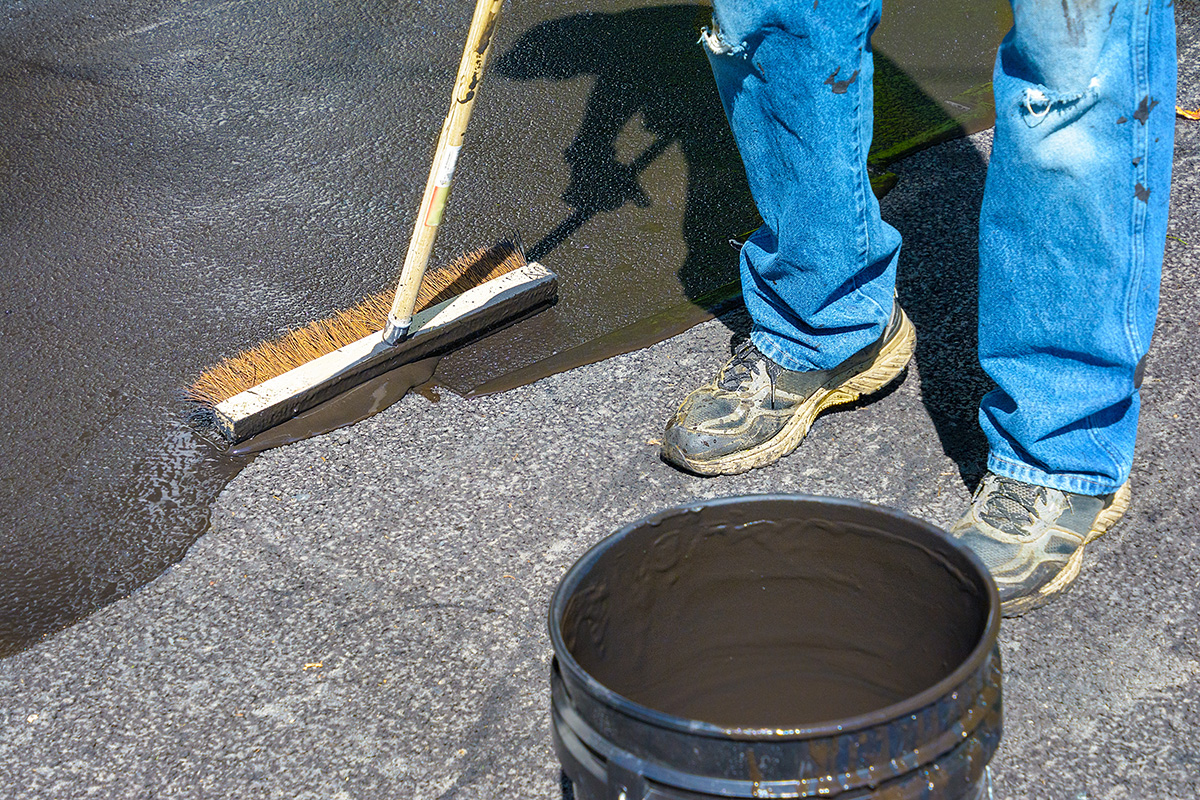Durable Results: Asphalt Spot Repair Through Accuracy Sealing
Wiki Article
Cold Mix Asphalt Vs. Hot Mix Asphalt: Which Is Right for You?

Structure Differences
Cold mix asphalt is generated by emulsifying the asphalt binder with water and an emulsifying representative before blending it with accumulation. The warm mix asphalt manufacturing process entails heating the aggregate and asphalt binder independently before incorporating them at the asphalt plant.
Moreover, cool mix asphalt tends to be much less thick and more adaptable than warm mix asphalt. This adaptability makes it better matched for areas with greater levels of activity, such as driveways or roadways with hefty website traffic. On the other hand, hot mix asphalt is recognized for its high durability and resistance to rutting and breaking, making it a preferred choice for freeways and high-traffic roads where long life is crucial.
Installation Process Variations
The process of mounting cold mix and warm mix asphalt displays significant differences in their treatments and needs. Cold mix asphalt, being a much more versatile product, can be used straight from the bag or container onto the hole or harmed location. It calls for marginal preparation job, such as cleaning up the area and compacting the cool combine with hand devices. This makes it a hassle-free option for fast and short-term repairs. On the other hand, warm mix asphalt demands an extra elaborate setup procedure. It involves warming the mixture to heats prior to laying it down on a correctly prepared base. The preparation consists of condensing the base, using a tack layer, and using hefty equipment like pavers and compactors for a durable and smooth surface. Because of the home heating demands, hot mix asphalt setups are usually executed by professionals with customized devices, making certain a more structurally sound and permanent outcome.Resilience and Long Life Factors
When thinking about asphalt alternatives, sturdiness and durability are critical elements to assess for long lasting sidewalk efficiency. Hot mix asphalt (HMA) is recognized for its exceptional longevity and long life.
In regards to durability, HMA usually surpasses CMA because of its exceptional toughness and resistance residential properties. HMA pavements have a longer solution life, requiring less constant repair work and upkeep, which can translate to cost financial savings over time. Furthermore, HMA sidewalks are a lot more quickly personalized to fulfill certain project needs, even more boosting their sturdiness.
Expense Factors To Consider
Taking into consideration the financial ramifications is a vital element when assessing the choice in between hot mix asphalt (HMA) and chilly mix asphalt (CMA) for sidewalk jobs. While the initial expense of hot mix asphalt is commonly higher than that of cool mix asphalt, HMA commonly offers an extra cost-efficient remedy in the long run due to its remarkable toughness and longevity.Along with material costs, it's necessary to take into consideration the costs related to installment and upkeep when comparing HMA and CMA. HMA typically needs customized devices and knowledgeable labor for proper installment, which can impact general task expenses. On the other hand, CMA is much easier to collaborate with and can frequently be applied using easier techniques, potentially reducing installation expenditures. Inevitably, the decision in between HMA and CMA must consider not simply the initial price yet also the long-term financial ramifications to determine one of the most economical option for the certain sidewalk project.
Environmental Influence Contrast
Comparison of the environmental impacts in between hot mix asphalt (HMA) and cool mix asphalt (CMA) reveals unique differences in sustainability practices. HMA manufacturing requires high temperature levels, causing increased power usage and greenhouse gas emissions. The procedure additionally releases volatile organic compounds (VOCs) and harmful air pollutants cold mix asphalt (HAPs) into the ambience. On the other hand, CMA is created and used at reduced temperatures, decreasing energy use and emissions considerably. The lower manufacturing temperatures of CMA result in reduced gas intake and lower levels of CO2 emissions, making it an extra ecologically pleasant option.In addition, the usage of CMA commonly involves recycling existing asphalt sidewalk, promoting source conservation and decreasing the amount of waste sent out to garbage dumps. By opting for CMA over HMA, road building jobs can add favorably to ecological conservation initiatives.
Verdict
Finally, the selection in between cold mix asphalt (CMA) and hot mix asphalt (HMA) depends upon different aspects such as composition, installation process, sturdiness, longevity, price, and ecological impact. cold mix asphalt. While CMA supplies a cost-efficient and quick option for small repair services, HMA ensures remarkable resilience and longevity for rush hour locations. Take into consideration these factors carefully to identify which kind of asphalt is the right choice for your paving requires

Taking into consideration the financial ramifications is an essential element when reviewing the selection between warm mix asphalt (HMA) and cold mix asphalt (CMA) for pavement jobs. While the initial cost of hot mix asphalt is usually greater than that of cold mix asphalt, HMA usually gives a more economical service in the lengthy run due to its exceptional toughness and durability. asphalt patch repair.Contrast of the environmental effects between hot mix asphalt (HMA) and chilly mix asphalt (CMA) reveals distinctive differences in sustainability practices.In conclusion, the option in between cool mix asphalt (CMA) and hot mix asphalt (HMA) depends on various elements such as structure, setup procedure, durability, longevity, price, and ecological impact
Report this wiki page